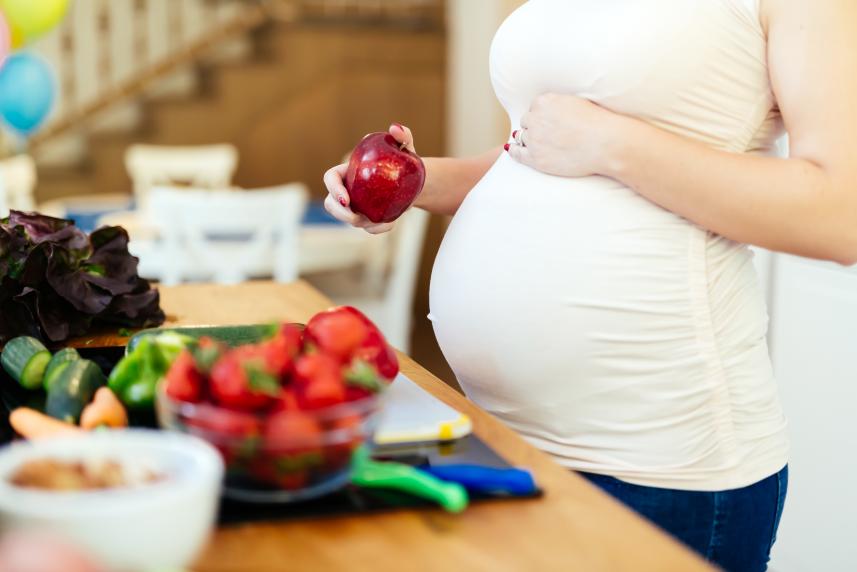Work it Out!

One of your biggest jobs during pregnancy is to take care of yourself: By eating well, drinking plenty of water, and, though it might be the last thing you feel like doing, getting some light exercise.
Treat yourself, but not too much!
Unfortunately, “eating for two” doesn’t mean doubling your daily calories. Once morning sickness subsides and cravings kick in, help yourself to an additional 300 calories each day (600 if you’re expecting twins) from a healthy, balanced diet. Focus on the following nutrients:
Protein:
for proper development of the fetus and placenta (meats, fish, beans)
Calcium:
for healthy development of the fetus (milk, cheese, green vegetables, tofu)
Iron:
for the developing blood supply of the fetus and to prevent anemia in the mother (red meat, turkey, greens, dried fruits)
Folic acid:
to reduce the risk of defects of the spine and brain (ask your doctor to recommend a supplement. Food sources include lentils, beans, kale, spinach, and broccoli)
If you follow a special diet, schedule a no-cost visit with a nutritionist* to make sure that you’re getting the nutrients you need as you and baby grow.
Say “Aaaaah”
Be sure to brush and floss after eating. Pregnancy is no time to slack on dental health. Hormonal changes can make some women more prone to gingivitis during pregnancy. Here are some tips for keeping your mouth healthy.
Work it out
Energy may be in short supply at times during your pregnancy, but some light exercise can be beneficial. According to the American College of Obstetricians and Gynecologists (ACOG), exercise during pregnancy may:
- Reduce backaches, constipation, bloating, and swelling
- Increase energy
- Help with adjustment of posture
- Improve sleep
- Prepare you for labor
Talk to your care provider before starting a new routine. Consider low-impact exercises like walking, riding a stationary bike, swimming, and prenatal yoga. Be sure to stay hydrated and to stop immediately if anything doesn’t feel right.


